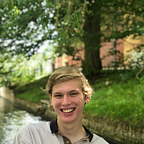CS373 Fall 2020: Jonathan Randall
Hello! Welcome to Week 2 of my blog!
What did you do this past week?
I worked on the Collatz project, worked my first full week a a TA, and met with my research group at the Computational Visualization Center. It was fascinating to see how varied the research subjects are, from machine learning to computational biology.
What’s in your way?
I am worried my schedule is too intense. I’m nervous I’m going to get overwhelmed by classes, work, and recruiting. Also, I don’t understand if I’m running or testing my project code correctly, since there are so many tools to use for the project.
What will you do next week?
The same as last week! Hopefully, I’ll find time to exercise or honestly do anything memorable. Maybe I’ll go shopping. Maybe I won’t. My kitchen sink needs a curtain because the area under it is exposed.
What was your experience of assertions, unit tests, and coverage? (this question will vary, week to week)
I had never used coverage. It seems like an easy way to analyze what lines of code are being tested, and what additional unit tests need to be written. I wish I had used it in other courses instead of a billion assert(False) statements to check what code was actually running.
How are you doing and holding up? What’s been most helpful for you in terms of support at this time?
I’m doing okay! I’ve noticed that each semester starts with a burst of energy that gradually dies down. I have been using Google Calendar and notifications so I don’t miss classes, since I get distracted very easily.
What made you happy this week?
It was nice to be over with my first full week of work. Less happy, more relieved. My roommate Richard made pork belly for dinner last night, that was good. I installed a swing in my front yard.
What’s your pick-of-the-week or tip-of-the-week?
I’ve been attending the theory seminars at UT. I really enjoy learning about theoretical computer science, and the ingenious workarounds people have come up with to solve old problems. Although most of the proofs are not always super accessible, the problems themselves are not too difficult to understand.
